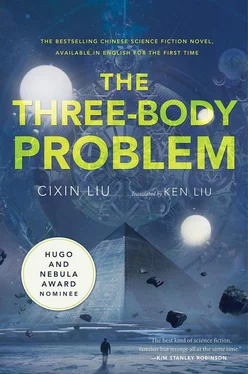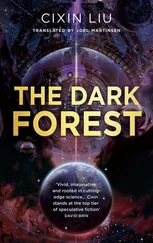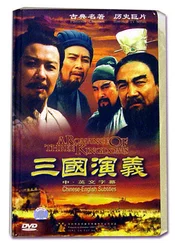“What? Yang Dong is… a woman?”
“Indeed,” the director said. “We only found out when we finally met her two days ago.”
The young engineer asked, “Does she have some psychological issue? Why else wouldn’t she agree to be interviewed by the media? Maybe she’s like Qian Zhongshu, [11] Translator’s Note: Qian Zhongshu (1910–1998) was one of the most famous Chinese literary scholars of the twentieth century. Erudite, witty, and aloof, he consistently refused media appearances. One might think of him as a Chinese Thomas Pynchon.
who died without ever appearing on TV.”
“But at least we knew Qian’s gender. I bet Yang had some unusual experiences as a child. Maybe it made her somewhat autistic.” Wang’s words were tinged with a hint of self-mockery. He wasn’t even famous enough for the media to be interested in him, let alone to turn down interview requests.
Yang walked over with the chief engineer. As they passed, she smiled at Wang and the others, nodding lightly without saying anything. Wang remembered her limpid eyes.
That night, Wang sat in his study and admired the few landscape photographs, his works he was the most proud of, hanging on the wall. His eyes fell on a frontier scene: a desolate valley terminating in a snowcapped mountain. On the nearer end of the valley, half of a dead tree, eroded by the vicissitudes of many years, took up one-third of the picture. In his imagination, Wang placed the figure that lingered in his mind at the far end of the valley. Surprisingly, it made the entire scene come alive, as though the world in the photograph recognized that tiny figure and responded to it, as though the whole scene existed for her.
He then imagined her figure in each of his other photographs, sometimes pasting her two eyes into the empty sky over the landscapes. Those images also came alive, achieving a beauty that Wang had never imagined.
Wang had always thought that his photographs lacked some kind of soul. Now he understood that they were missing her .
* * *
“All the physicists on this list have committed suicide in the last two months,” General Chang said.
Wang was thunderstruck. Gradually, his black-and-white landscapes faded into blankness in his mind. The photographs no longer had her figure in the foreground, and her eyes were wiped from the skies. Those worlds were all dead.
“When… did this happen?” Wang asked mechanically.
“The last two months,” Chang repeated.
“You mean the last name, don’t you?” Shi responded with satisfaction. “She was the last to commit suicide—two nights ago, overdosed on sleeping pills. She died very peacefully. No pain.”
For a moment, Wang was grateful to Shi.
“Why?” Wang asked. The dead scenes in those landscape photographs continued to flicker through his mind.
General Chang replied, “The only thing we can be sure of is this: The same reason drove all of them to suicide. But it’s hard to articulate. Maybe it’s impossible for us nonspecialists to even understand the reason. The document contains excerpts from their suicide notes. Everyone can examine them after the meeting.”
Wang flipped through the notes: All of them seemed to be long essays.
“Dr. Ding, would you please show Yang Dong’s note to Professor Wang? Hers is the shortest and possibly the most representative.”
The man in question, Ding Yi, had been silent until now. After another pause, he finally took out a white envelope and handed it across the table to Wang.
Shi whispered, “He was Yang’s boyfriend.” Wang recalled that he had seen Ding at the particle accelerator construction site in Liangxiang. He was a theoretician who had became famous for his discovery of the macroatom while studying ball lightning. [12] Translator’s Note: For more on Ding Yi, see Ball Lightning by Cixin Liu.
Wang took from the envelope a thin, irregularly shaped sheet exuding a faint fragrance—not paper, but birch bark. A single line of graceful characters was written on it:
All the evidence points to a single conclusion: Physics has never existed, and will never exist. I know what I’m doing is irresponsible. But I have no choice.
There wasn’t even a signature. She was gone.
“Physics… does not exist?” Wang had no idea what to think.
General Chang closed the folder. “The file also contains some specific information related to the experimental results obtained after the completion of the world’s three newest particle accelerators. It’s very technical, and we won’t be discussing it here. The first focus of our investigation is the Frontiers of Science. UNESCO designated 2005 the World Year of Physics, and that organization gradually developed out of the numerous academic conferences and exchanges that occurred among world physicists that year. Dr. Ding, since you’re a theoretical physicist, can you give us more background on it?”
Ding nodded. “I have no direct connection with the Frontiers of Science, but it is famous in academia. Its core goal is a response to the following: Since the second half of the twentieth century, physics has gradually lost the concision and simplicity of its classical theories. Modern theoretical models have become more and more complex, vague, and uncertain. Experimental verification has become more difficult as well. This is a sign that the forefront of physics research seems to be hitting a wall.
“Members of the Frontiers of Science want to attempt a new way of thinking. To put it simply, they want to use the methods of science to discover the limits of science, to try to find out if there is a limit to how deeply and precisely science can know nature—a boundary beyond which science cannot go. The development of modern physics seems to suggest that such a line has been touched.”
“Very good,” General Chang said. “According to our investigation, most of the scholars who committed suicide had some connection with the Frontiers of Science, and some were even members. But we’ve found no evidence of the use of illegal psychotropic drugs or techniques akin to the psychological manipulation of religious cults. In other words, even if the Frontiers of Science influenced them, it was only through legal academic exchanges. Professor Wang, since they recently contacted you, we’d like to ask you for some information.”
Shi added gruffly, “Including the names of your contacts, the times and locations of meetings, the content of your conversations, and if you exchanged letters or e-mails—”
“Shut up, Da Shi!” General Chang said.
Another police officer leaned over and whispered to Shi, “Do you think we’ll forget you have a mouth if you don’t use it all the time?” Shi picked up his teacup, saw the drowned cigarette butt inside, and put it back down.
Shi’s questions irritated Wang again, not unlike the feeling a man has upon finding out that he has swallowed a fly with his meal. The gratitude he had felt earlier was gone without a trace. But he restrained himself and answered, “My contact with the Frontiers of Science began with Shen Yufei. She’s a Japanese physicist of Chinese descent who currently works for a Japanese company here in Beijing. She once worked at a Mitsubishi lab, researching nanotech. We met at a technical conference at the beginning of this year. Through her, I met a few other physicist friends, all members of the Frontiers of Science, some Chinese, some foreign. When I talked with them, all the topics were… how do I put this? Very radical. They all involved the question that Dr. Ding just described: What is the limit of science?
“Initially, I didn’t have much interest in these topics. I thought of them as only an idle pastime. My work is in applied research, and I don’t know much about these theoretical matters. Mainly, I was interested in listening to their discussions and arguments. All of them were deep thinkers with novel points of view, and I felt that I was opening my mind through the exchanges. Gradually, I grew more interested. But all our talk was limited to pure theory and nothing else. They once invited me to join the Frontiers of Science. But if I had done so, attending the discussions would have turned into a duty. Since my time and energy were limited, I declined.”
Читать дальше












